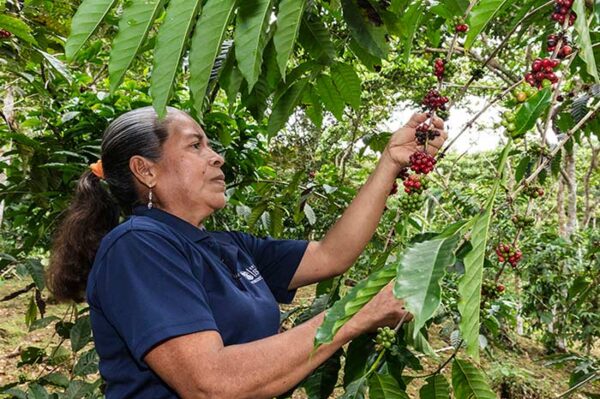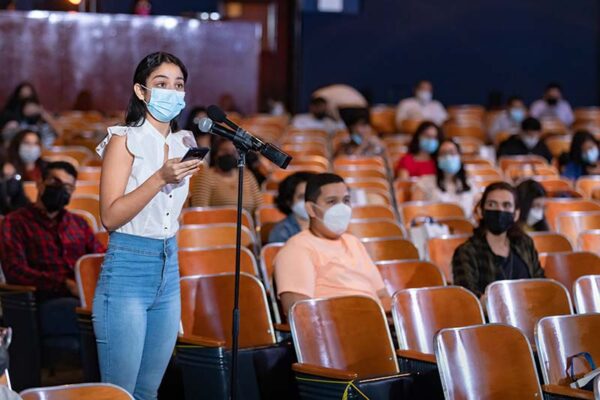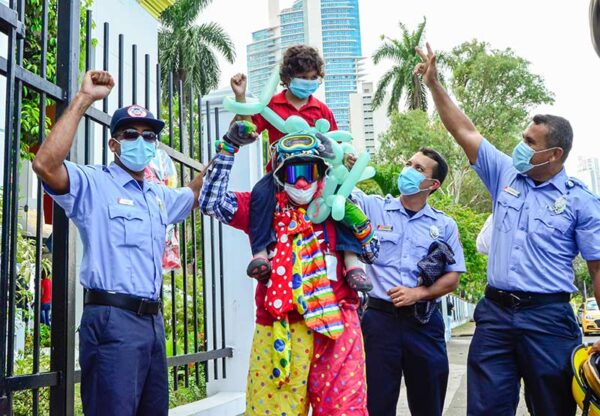Social benefits of the Panama Canal
In addition to the B/. 2,000 million contributed directly to the National Treasury, the Panama Canal offers development opportunities for […]
In addition to the B/. 2,000 million contributed directly to the National Treasury, the Panama Canal offers development opportunities for the people.
Since its construction, the Panama Canal has had a crucial impact on our society. By opening a new era for maritime trade, it completely changed our economy and cemented a new era in our history. Its construction marked a period of migration of nationals and foreigners that laid the foundations for the growth of the provinces of Panama and Colon. It is worth noting that since the dawn of the American administration, Panamanian society raised the historical claim for complete sovereignty.
This claim made it possible for the idea of renegotiating the treaty in perpetuity to germinate and for the country to become master of its destiny. Along the way, a series of studies were generated prior to the handover of the Canal, which resulted in the urgent need to protect the rivers and forests of its watershed.
Thus was created the Chagres National Park, crucial in the protection of the rivers that feed the Gatun and Alhajuela lakes. With the entry into force of the Torrijos-Carter Treaties, Panamanians began a series of dialogues that were decisive for the administration of the interoceanic waterway as we know it today.

In those dialogues, representatives of the different sectors of Panamanian society discussed and analyzed how they wanted the Canal to be in the future, from the labor aspect, the contributions to the Nation and the administration of its lands and water resources.
After its transfer to Panamanian hands, the Canal has generated, in addition to an important economic contribution, new contributions to society.
Direct social impact: titling, economic incentives and environmental protection
The Panama Canal is carrying out a land titling program that has delivered 8,941 property titles for the benefit of 16,227 inhabitants of the watershed.
In addition to the Environmental Economic Incentives Program with 9,000 hectares established, 3,150 hectares of protected forests, 3.8 million seedlings planted. Among these benefits is that of coffee planting, which has generated 17,000 quintals of coffee harvested in the watershed during the years 2020-2021 with a direct benefit to producers.

Citizen Action Laboratory
The Canal’s outreach to society reaches all ages. In early 2021, young people from all over the country participated in the virtual closing ceremony of the Latin American Citizen Action Laboratory (LLAC Advanced 2020); in its Regular (1.0) and Advanced (2.0) versions, an initiative to train young people in community action, advocacy and leadership. It was a recognition of the effort, perseverance and dedication of 200 youth leaders from all over the country, committed to identifying answers to problems relevant to their communities and the integrated management of solutions, with special emphasis on environmental sustainability and its social and economic impact.
Contact with young environmentalists
In addition, the interoceanic waterway held a series of talks with young environmentalists on water resource management, environmental protection, and the future of water. One of these discussions, subject to the virtuality required by the distancing, brought together members of the Young Environmentalists Network from different parts of the country, who raised their concerns about the most pressing environmental issues in their communities and their possible solutions.

More than 200,000 volunteer hours
Another direct impact between the Canal and society is the selfless work of the Panama Canal Volunteer Program, which, for the past thirteen years, has dedicated its time, talent, creativity and intelligence to building a better future. Although these have not been easy years due to the pandemic with its restrictions on mobility and distancing, the team of volunteers, through the use of new technologies, continued to support those who need it most. Thus, during fiscal year 2021, 22 volunteer days were completed, involving the participation of 241 volunteers, who dedicated 5,200 hours of support to the community. Since the Corporate Volunteer Program began 13 years ago, 4,008 volunteers have joined the cause, contributing 205,800 hours of service in five areas: environment, integral wellbeing, culture, community development and education; all of these principles aligned with the United Nations Sustainable Development Goals.
Canal Summer
And what better way to get in touch with our society by offering a free cultural show open to the public?
Music, that universal language that fills us with joy and makes us dance, has been for years the essential element of the Canal Summer. Since 2003, the steps of the Administration building have become the ideal stage to enjoy music, theater and cinema in the open air every summer. Throughout its history, musicians, singers, actors and personalities of the artistic world, both Panamanian and international, have accompanied us, offering us the best of their repertoire.
This initiative, which began as part of the celebrations for the Centennial of the Republic, became a showcase for art and culture, and a space to share with the family. Although in the last two years, due to the pandemic, it has not been possible to carry out these shows, there are plans to bring it back once the biosecurity measures allow it.
After 22 years under Panamanian administration, the interoceanic waterway continues to increase its direct contributions to the State while at the same time imposing new challenges for the future, such as water sources and decarbonization, with the objective of continuing to fully provide benefits to our society.